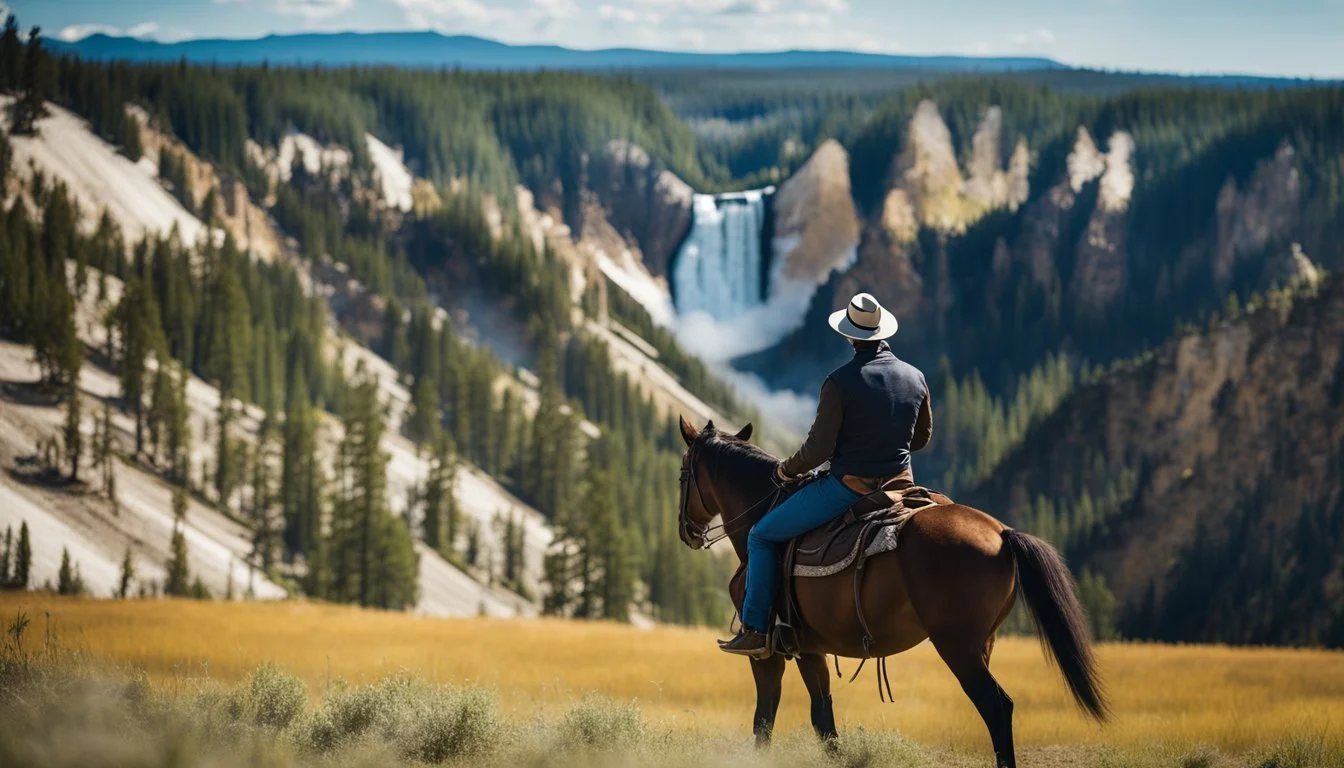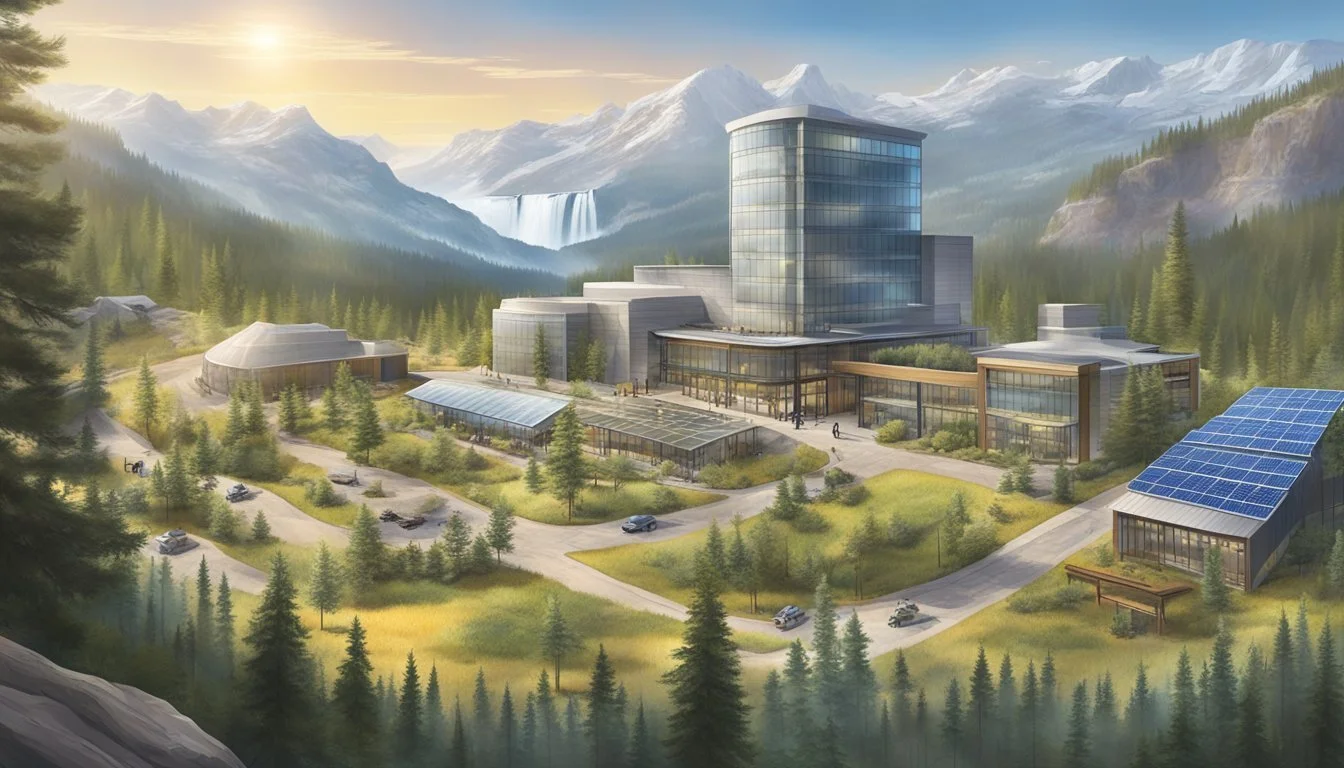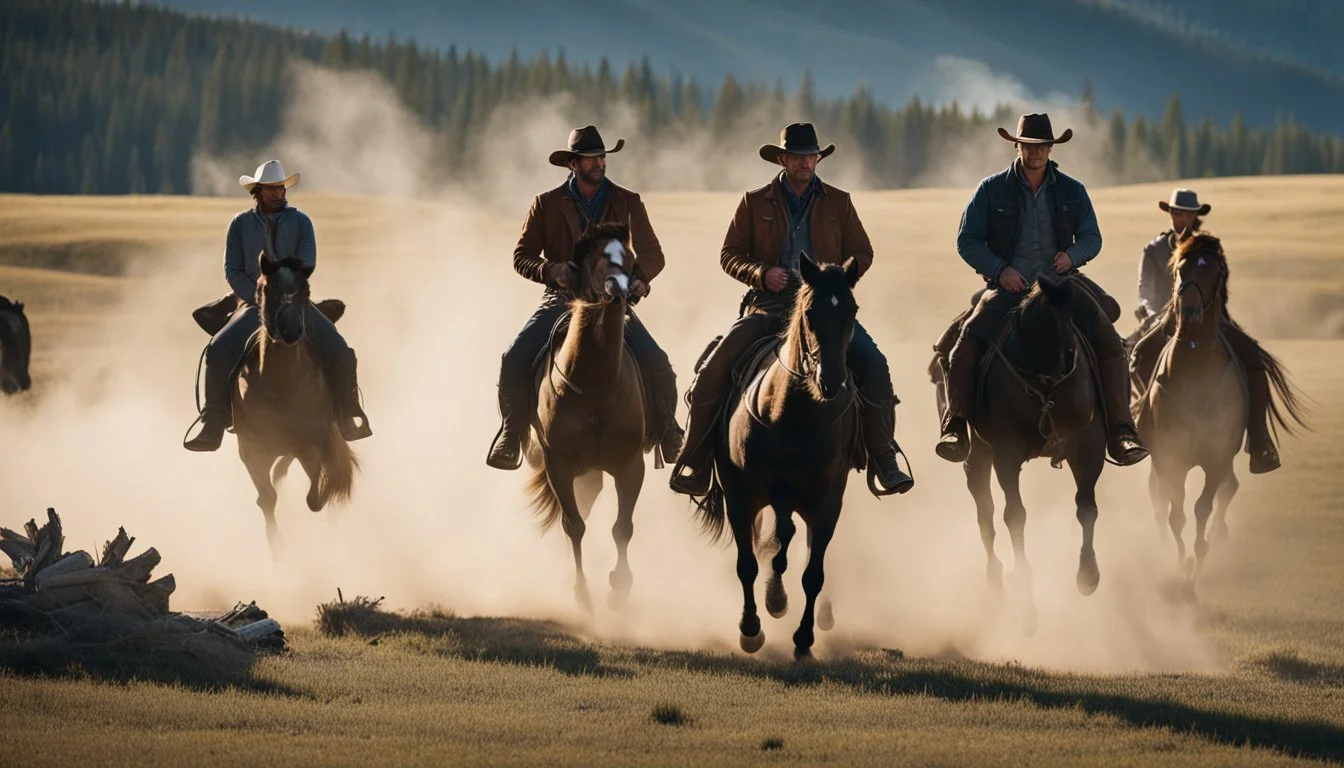Corporate Greed Threatens to Destroy Yellowstone's Natural Beauty Forever
The Yellowstone Dutton Ranch, a sprawling symbol of the American West, faces its greatest challenge yet from Market Equities. This corporate giant seeks to transform the pristine Montana landscape into a bustling hub of development. If Market Equities were to succeed, the consequences would be far-reaching, permanently altering the character of the region and the lives of those who call it home.
John Dutton and his family have fought tirelessly to preserve their legacy, but Market Equities' vision for the land threatens to overwhelm their efforts. The proposed changes include luxury resorts, an airport, and commercial developments that would bring an influx of tourists and new residents to the area. This clash between tradition and progress has captured the imagination of viewers, raising questions about the future of rural America.
The potential success of Market Equities would not only impact the Dutton family but also reshape the local economy and environment. It would mark a significant shift in the power dynamics of the region, with corporate interests gaining unprecedented control over vast tracts of land. The ramifications of such a change would extend far beyond the borders of the Yellowstone Dutton Ranch, affecting neighboring communities and the delicate ecosystem of the area.
Market Equities' Strategy for Yellowstone
Market Equities devised a multi-faceted approach to gain control of the Yellowstone ranch and surrounding lands. Their strategy involved financial maneuvering, negotiations, and forming strategic partnerships to overcome the Duttons' resistance.
Acquiring Controlling Interest
Market Equities aimed to secure a controlling stake in the Yellowstone ranch through aggressive financial tactics. They targeted vulnerable areas of the Dutton empire, seeking to exploit any financial weaknesses. The company attempted to buy out smaller landowners adjacent to the ranch, creating pressure on the Duttons' borders.
Market Equities also explored options to acquire shares in businesses connected to the Duttons. This included investigating potential stakes in local banks, suppliers, and other entities crucial to the ranch's operations.
The corporation leveraged its vast resources to outbid competitors and influence local officials. Their goal was to gradually encircle the Duttons, limiting their options and forcing them into a position where selling became the only viable choice.
Negotiations with the Duttons
Market Equities engaged in direct negotiations with the Dutton family, presenting offers that were difficult to refuse. They approached different family members separately, hoping to exploit internal divisions.
Beth Dutton, known for her business acumen, became a primary target. Market Equities attempted to sway her with lucrative job offers and promises of a stake in their development plans.
Jamie Dutton, with his legal background, was another focus. The company sought to use his expertise and potential ambitions against the family's interests.
Market Equities also tried to appeal to John Dutton's sense of legacy, proposing ways to preserve parts of the ranch while developing others. They emphasized the potential economic benefits for the region, hoping to persuade him to see their vision as progress rather than destruction.
Strategic Alliances
To strengthen their position, Market Equities formed alliances with other powerful entities in the region. They reached out to Thomas Rainwater, the Native American leader, proposing partnerships that could benefit his community while advancing their own agenda.
The company explored collaborations with local businesses and politicians. They promised economic growth, job creation, and increased tax revenue to gain support for their development plans.
Market Equities also sought to influence public opinion through media campaigns and community outreach programs. They presented their vision as a modernization effort that would bring prosperity to the area.
These alliances were designed to isolate the Duttons and create a united front against their resistance. By aligning various interests, Market Equities aimed to make their takeover seem inevitable and beneficial for the majority.
Potential Developments
Market Equities' plans for Yellowstone involve two major projects: an airport and a ski resort. These developments would significantly alter the landscape and economy of the area.
Airport Construction
The proposed airport would serve as a gateway to the region. It would likely feature a modern terminal building and multiple runways to accommodate commercial and private aircraft. The facility could handle both domestic and international flights, increasing tourism and business travel to Montana.
The airport's construction would require extensive land clearing and grading. Environmental impact assessments would be necessary to address concerns about wildlife habitats and noise pollution. Local infrastructure, including roads and utilities, would need upgrading to support the increased traffic and energy demands.
Job creation would be a significant benefit, with positions ranging from construction workers to airport staff. However, this could also lead to population growth and urbanization in the surrounding areas.
Ski Resort Plans
Market Equities' ski resort would aim to attract winter sports enthusiasts from around the world. The development would likely include multiple ski runs, chairlifts, and gondolas. A base village would offer lodging, restaurants, and retail spaces.
The resort's design would need to balance luxury amenities with environmental considerations. Snow-making equipment might be necessary to ensure a consistent ski season, raising questions about water usage and energy consumption.
Year-round activities could include hiking trails, mountain biking, and golf courses to maintain tourist interest during warmer months. This could help create a steady stream of visitors and jobs throughout the year.
The project would bring substantial economic benefits but might also strain local resources and alter the traditional ranching culture of the area.
Impacts on Key Stakeholders
Market Equities' success in Yellowstone would dramatically alter the lives of long-time residents and indigenous peoples. The Dutton family would face significant challenges to their way of life, while Native American tribes would confront new threats to their lands and sovereignty.
Changes for the Dutton Family
The Duttons would lose substantial portions of their ranch to development. John Dutton's legacy and lifelong work would be severely undermined. The family's influence in the region would diminish as new power players moved in.
Beth Dutton might leverage her business acumen to negotiate favorable deals, but family tensions could escalate. The ranch's operations would be disrupted by construction and increased traffic.
Adaptation would be crucial. The Duttons might need to diversify their business interests or consider selling more land to stay afloat financially.
Consequences for Native American Territories
Chief Thomas Rainwater and local tribes would face increased pressure on their lands. Development could encroach on sacred sites and disrupt traditional practices.
Economic opportunities might arise through jobs and tourism, but at the cost of cultural preservation. Tribes would need to balance potential benefits with protecting their heritage.
Legal battles over land rights and resource access would likely intensify. Native communities might form new alliances to resist further encroachment and maintain their sovereignty.
Environmental concerns would grow as development impacts local ecosystems and wildlife habitats crucial to indigenous ways of life.
Economic and Environmental Considerations
Market Equities' development plans for Yellowstone would significantly alter the region's economic landscape and natural environment. The project promises major financial gains but raises concerns about preserving the area's iconic wilderness and ecosystems.
Local Economy Boost
The development project would inject substantial capital into the local economy. New resorts, restaurants, and recreational facilities would create numerous jobs in construction, hospitality, and service industries. Real estate values in the area would likely surge, benefiting property owners and increasing tax revenues for local governments.
Tourism would expand beyond traditional park visits, potentially attracting a wider range of visitors year-round. This could lead to increased spending in the region and support small businesses catering to tourists.
However, the economic benefits may come with drawbacks. The cost of living could rise, potentially pricing out long-term residents. The influx of visitors and new residents might strain local infrastructure and services.
Ecological Impact
Market Equities' plans would significantly alter Yellowstone's natural landscape. Construction of hotels, ski resorts, and other amenities would require clearing land and altering habitats. This could disrupt wildlife migration patterns and reduce biodiversity in affected areas.
Increased human activity would likely lead to more pollution, including air emissions from traffic and waste generation. Water usage for new developments might strain local resources and impact aquatic ecosystems.
The project could fragment important wildlife corridors, affecting species like grizzly bears and wolves that require large, undisturbed territories. Noise pollution from construction and increased tourism might stress animal populations and alter their behavior.
Balancing economic growth with environmental preservation would be a significant challenge, requiring careful planning and stringent safeguards to minimize ecological damage.
Legal and Political Ramifications
Market Equities' success in Yellowstone would reshape land rights, regulations, and political dynamics. Key stakeholders like the Dutton family and Native American tribes would face significant challenges to their interests and sovereignty.
Land Rights and Regulation
Market Equities' plans would likely require changes to existing land use regulations. The company might lobby for rezoning to allow commercial and residential development on previously protected land. This could impact the Yellowstone Dutton Ranch, potentially forcing the family to sell portions of their property or face eminent domain claims.
Native American tribes in the area might see their treaty rights challenged. Market Equities could push for reduced environmental protections, allowing for more intensive development. State and local governments would need to balance economic opportunities against conservation efforts.
Jamie Dutton, with his legal background, might play a crucial role in navigating these complex regulatory changes. His actions could either protect or jeopardize his family's interests.
Political Influence and Decision-Making
Market Equities' success would likely increase their political clout. The company might invest heavily in lobbying efforts at local, state, and federal levels. This could lead to favorable policy decisions and potentially weaken opposition from environmental groups.
Beth Dutton, known for her business acumen, might find herself in direct conflict with Market Equities' political maneuvers. Her strategies to protect the ranch could involve forming alliances with other local landowners or leveraging media attention.
Political races in Montana could see increased campaign contributions from Market Equities and related interests. This might shift the balance of power, potentially leading to elected officials more sympathetic to development plans.
Local communities would face difficult decisions, weighing promises of economic growth against changes to their way of life. Public opinion could become deeply divided, creating new political fault lines in the region.
Conclusion
Market Equities' success in Yellowstone would have drastically altered the landscape. The Dutton Ranch would likely cease to exist as we know it. In its place, a bustling airport and urban development would reshape the area.
John Dutton's legacy would be forever changed. The family's connection to the land, built over generations, would be severed. Beth Dutton's fierce efforts to protect their heritage would ultimately prove futile.
The ecological impact on Yellowstone's pristine wilderness cannot be overstated. Wildlife habitats would be disrupted, and the natural beauty that drew visitors for years would be compromised.
Economic growth might occur, bringing jobs and infrastructure. However, this would come at the cost of the region's unique character and cultural heritage.
The Duttons' story would serve as a cautionary tale about the power of corporate interests over family-owned lands. It would highlight the ongoing struggle between preservation and development in America's rural areas.







